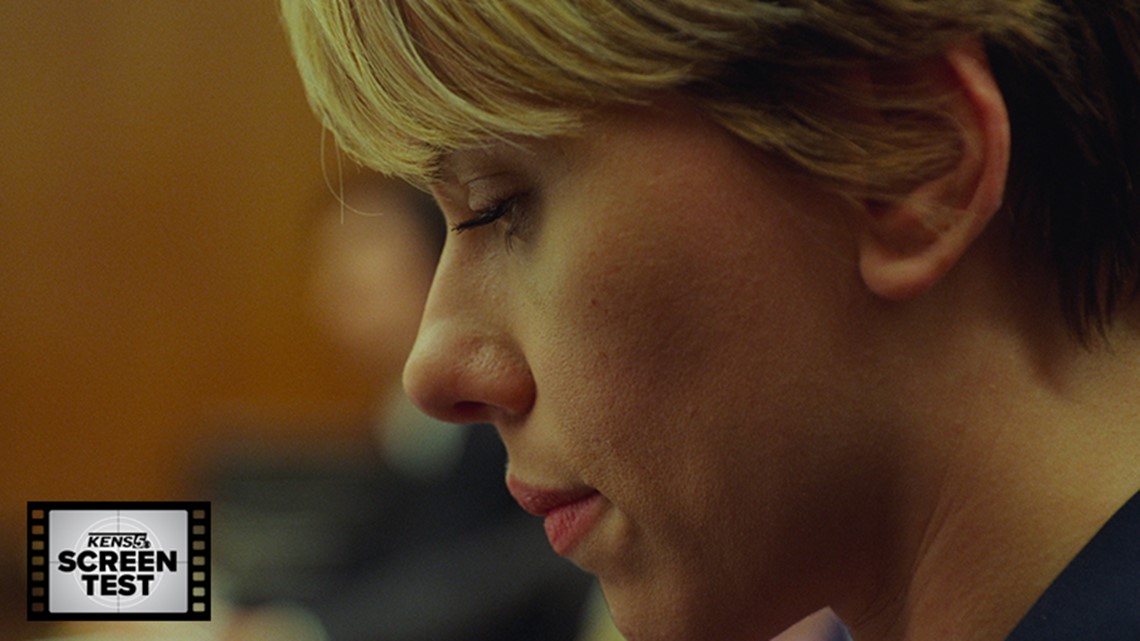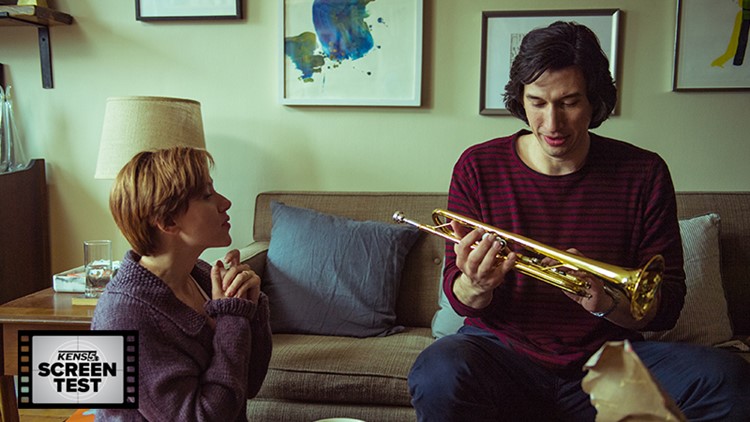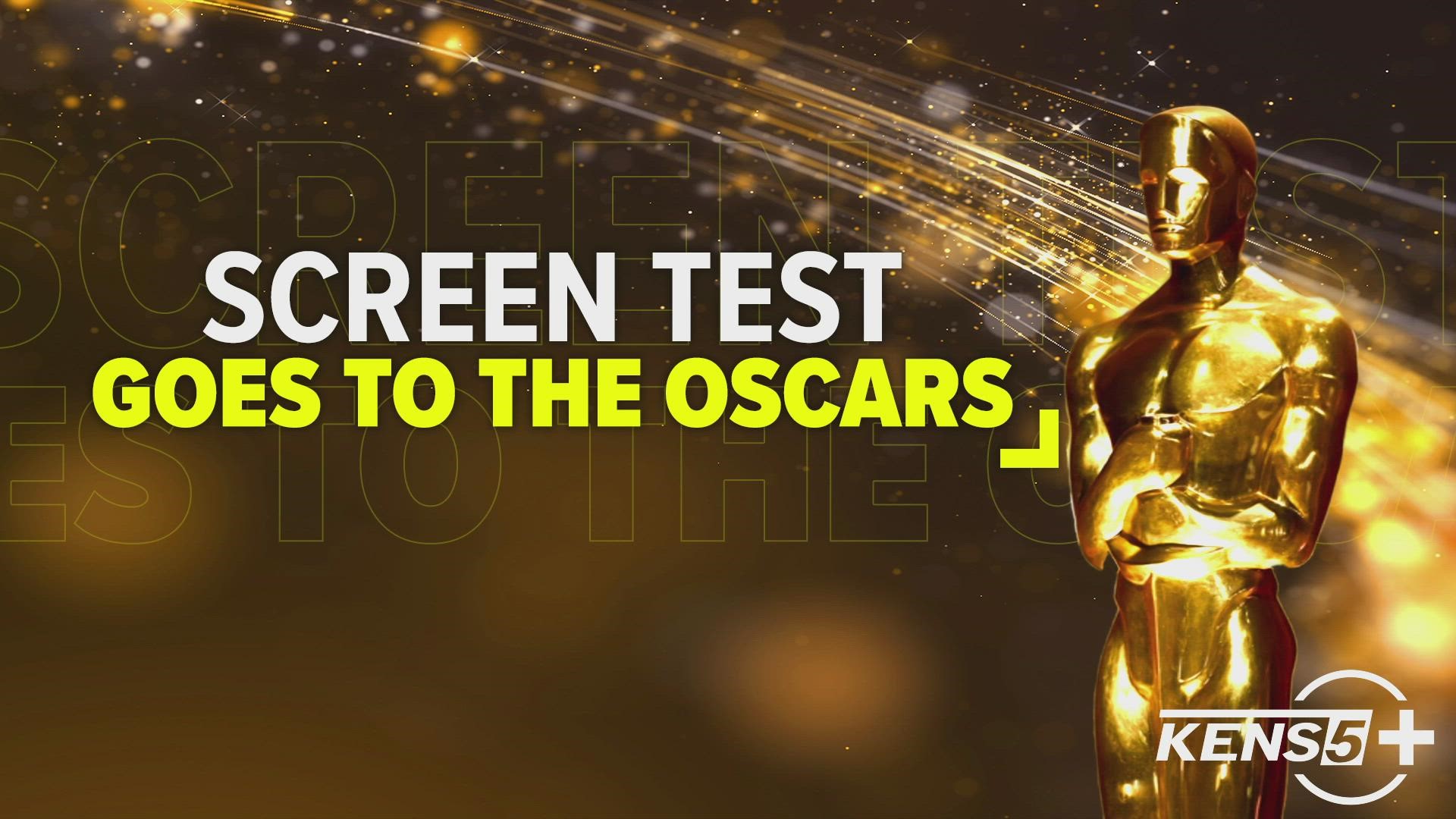“Marriage Story,” Netflix’s newest offering that finds the life-traipsing of writer-director Noah Baumbach at his most soulfully devastating, begins with a pair of monologues from the couple at its center played over scenes from a marriage. You may remember snippets from the trailers – she loves that he’s brilliant, he loves that she’s brave – but some details are missing. Who are these things being said to? Who are they being said for?
The questions are answered early. And, well…it’s complicated. But if you think those mirroring floods of compliments are Charlie and Nicole at their most honest, prepare to be emotionally walloped by “Marriage Story”—one of the very, very best movies of the year.
It isn’t a spoiler to say “Marriage Story” ends with divorce, but this is largely, and marvelously, unlike most divorce movies you’ve seen. It’s certainly not like Baumbach’s own “The Squid and the Whale,” a thornbush of a film in which every other caustic remark rocketed between members of the Berkman family is intended to do maximum damage. In the story of Adam Driver’s Charlie and Scarlett Johansson’s Nicole, whose mutual vow to keep an initial, seemingly amicable separation free from the tentacles of lawyers is doomed from the start, Baumbach trades in causticity for the infantile inexperience of two people navigating new waters of love and life as they become uneasy participants in contemporary structures meant to pit them against each other. It’s a key choice by Baumbach that Charlie and Nicole aren’t out to make enemies of themselves, and it’s not just for the sake of their son. The auteur is exploring something more heart-wrenching and universal: If we give ourselves completely over to another, what could possibly be left of us when they’re no longer by our side?
No one gets stuffed into a bear’s insides, but “Marriage Story” mirrors Ari Aster’s “Midsommar” in its powerful evocations of the claustrophobia of relationships slowly entering a new phase, even as Baumbach’s penchant for humor, sometimes at the most intentionally awkward of times, rings consistently true. As is typical of the filmmaker, the major set pieces of “Marriage Story” are monologues and back-and-forths that are thrillingly introspective—not just in the implications of what’s being said, but in the underlying emotions filling the silent pauses. In one early scene, Nicole isn’t simply recounting how she and Charlie met; we’re watching her relive it, as if Johansson really did. Not enough can be said about her performance as a woman, wife and mother simultaneously figuring out the next chapter of her life and reckoning with it; it’s startling, while watching her in “Marriage Story,” to realize how much the Marvel Cinematic Universe largely limits actors’ abilities to purely express the humanity in their characters. What Johansson does here is many times as monumental as any of Black Widows’s heroic acts. She’s rarely been better. Driver – as the self-centered, vulnerable, determinedly jaunty husband for whom work in New York City never stops and being with their son, Henry, on the opposite coast is paramount – perhaps never has.
“Marriage Story” is a sly dog of a movie when it comes to the ensemble at large, which Douglas Aibel and Francine Maisler are responsible for constructing. Driver and Johansson are eminently believable as two thirty-something artists living in New York City at the beginning of the end, straddling the line between down-to-earth thespians and a couple you’d glance over your shoulder to get a second look at on the street. Henry’s babysitter, who can’t stop herself from remarking “God, you guys are so attractive” when they return home, is all of us.
But the movie also knows about the perceived histories of celebrities that audiences bring with them, especially in regard to Laura Dern and Ray Liotta’s dueling lawyers. The fact their performances are only a few degrees removed from two of their most well-known roles – Renata Klein and Henry Hill – feels like Baumbach rewarding familiarity of filmography, and goes a long way toward keeping the movie’s human focus on Charlie and Nicole as Liotta and Dern spar from within the same courtroom, and also from without.
The movie’s intentions, and its humanity, lie in the differences between how Charlie and Nicole behave in these scenes versus how they behave alone with each other as the legal battle sizzles, but rightfully never explodes into the movie’s forefront. There’s an irony in the fact that Henry complicates matters to the nth degree. With their lawyers, Charlie and Nicole talk of custodial strategy. With each other, conversation is about second Halloweens and costume plans. In a great thematic sleight of hand, Baumbach has managed to make a movie that’s ostensibly Charlie against Nicole actually be Charlie and Nicole against everybody else. His ideas about the marriage (sorry) between societal structure and life — mechanism and organism — are utterly of apiece with our age, when so much that used to be personal is now public.
Baumbach typically imbues his dialogue with a characteristic sharpened edge; in “Marriage Story,” we are watching the knife sharpened in real-time. Personal histories are weaponized against each other – it’s clear things aren’t unfolding how Charlie and Nicole would prefer for them to – and a climactic argument in the second half of the film isn’t the stuff of harm; it’s desperation and confusion and emotional explosion. In other words, it’s life.
What’s heartbreaking is when legal systems designed to drain bank accounts are also shown draining the life from the remains of fractured feelings — love, resentment, sadness, regret — that systems have no place dictating in the first place. Cinematographer Robbie Ryan, nominated last year for his work on “The Favourite,” should be acknowledged for his contributions. Rooms feel cavernous when Charlie, Nicole and Henry are the ones inhabiting them, but constricting when in the skyscraper offices of lawyers (in a running gag, everyone is always praising the “space” of LA). Randy Newman’s flowery lullaby of a score helps underscore the tone Baumbach is going for; it’s a recognition of the beauty that love brings, tinged with just the right amount of helplessness that sometimes arrives later.


Then there’s “Marriage Story’s” forthright declarations about how we approach our relationships—as if they were Broadway productions. An early throwaway line by a theater actor who says “acting is reacting” isn’t a throwaway line at all—Baumbach is reminding us of things taken for granted, and informing how we should read Driver and Johansson’s chemistry. As Charlie and Nicole move from amicable separation to whirlwind finality, the director is able to adjust the dial on his main two performances in accordance to what’s happening around them. “We don’t need to practice, this is not a performance,” Nicole says while in LA, and yet she’s providing stage directions to her mother and sister all the same when planning how to serve divorce papers when Charlie arrives. She instructs them on where to go and when to come in and how to stand, in one of the movie’s many scenes that unfurls with a sweetly sardonic energy. The people around Charlie and Nicole – lawyers, family, friends, Henry –reshape the story of what’s happening between them, hitting the tropes and clichés of ending marriages.
But when they’re interacting with each other, it’s improv—at-once much simpler, and not nearly as simple. Glances of longing for a life in which things turned out differently are exchanged, but they can only happen on the spot, and Driver and Johansson sell it. Baumbach is so good about juxtaposing what is natural in a marriage with what is mechanical about legally aborting it, and the distinction makes the post-matrimony path all the more difficult for Charlie and Nicole to stay on. It helps that the story has an air of timelessness to it. It’s easy to imagine an unhinged Twitter rant or explicit political conversation being B-plots in a different version of this movie—perhaps even a great movie. The relative restraint of “Marriage Story” makes it an incredible one.
The protagonist of Baumbach’s own “Frances Ha” waxes poetic about the shared universes between two people, a “secret world that exists right there in public, unnoticed, that no one else knows about”—“Marriage Story” lives inside a universe inhabited only by Charlie and Nicole. Even at nearly 140 minutes, there’s something about the final moments of the movie that feel brief, nonchalant, as if something’s missing. It’s one of Baumbach’s most wonderfully subtle tricks—a flourish in the finale would suggest an ending to his audience. Instead, he’s suggesting that nothing really is.
"Marriage Story" is rated R for language throughout and sexual references. It's streaming now on Netflix.
Starring: Scarlett Johansson, Adam Driver, Merritt Weaver, Laura Dern
Directed by Noah Baumbach
2019



